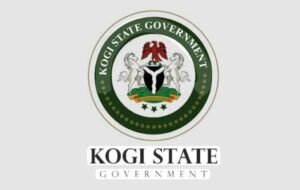In a major step towards enhancing public trust and effective policy delivery, the Federal Ministry of Education (FME) has launched its Unified Communications Strategy and Framework for 2025–2027.
The newly unveiled strategy provides a data-driven and coordinated approach to communication across the Ministry, its departments, agencies, and parastatals.
It aims to strengthen transparency, streamline messaging, and improve public understanding of government programmes and reforms in the education sector.
The Communications Strategy is anchored on five strategic pillars:
- Unified Messaging and Branding
- Stakeholder Engagement and Public Trust
- Crisis Communication and Reputation Management
- Monitoring, Evaluation and Learning
- Capacity Building and Professionalisation of Communication
According to the Ministry, the plan sets out to:
- Establish clear communication priorities and target audiences for all departments.
- Standardise messaging, branding, and outreach across the sector.
- Increase public awareness of education reforms and initiatives through coordinated engagement.
- Strengthen internal accountability through evidence-based planning and evaluation.
The rollout will include the appointment of communication focal points within each department, the introduction of a shared content calendar, and the central coordination of all messaging efforts through the Press and Public Relations Unit.
To ensure consistency and professional standards, communication officers will receive targeted training in areas such as media relations, digital engagement, crisis response, and data storytelling.
The Ministry also plans to develop a comprehensive Communication Toolkit and a Knowledge Hub for use across the education sector.
Importantly, communication planning will be integrated into departmental workplans and budgets to ensure long-term sustainability.
Read Also
- Morocco Scholarship: FG Dismisses Claims Of Abandoning Nigerian Students
- FG Releases N2.3bn To Universities, Deepens Dialogue To Solve Inherited Issues
- FG Debunks Viral Claim Of Sponsorship Request For Maths Olympiad Student
- Ministry of Education to probe alleged unlawful deductions from NELFUND by Varsities
READ ALSO: FG Releases New Revised Basic Education, SSCE Curriculum
Stakeholder feedback mechanisms will also be introduced to promote responsiveness and continuous improvement.
To track effectiveness, the strategy includes a robust monitoring and evaluation framework.
Communication efforts will be assessed using metrics such as reach, engagement, public perception, and overall impact.
These insights will inform real-time adjustments to ensure ongoing relevance and responsiveness.
The Ministry anticipates several key outcomes from the strategy:
- A more consistent and credible voice across the education sector.
- Greater public awareness and understanding of government policies and programmes.
- Improved alignment between communication efforts and policy implementation.
- A lasting culture of professional, data-driven communication across the Ministry.
The Federal Ministry of Education reaffirmed its commitment to transparency, accountability, and meaningful stakeholder engagement as it works to reshape Nigeria’s education landscape.
“This strategy marks a new chapter in how we communicate with citizens, stakeholders, and partners,”a spokesperson stated.
“Our goal is to ensure every Nigerian understands and trusts the work being done to transform education in the country.”





